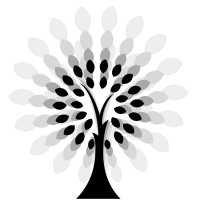Deital (God)
A deital [DAY-it-ul], also called a deivat or god-spirit or god, is an elemental which has achieved a great power and a degree of consciousness from being the focus of human worship.
Magicplugin-autotooltip__small plugin-autotooltip_bigMagic
Magic, also called thaumaturgy is the art and science of harnessing elementals, and instructing them to carry out simple or complex tasks.
Invoking more powerful spirits or gods is a related but much more dangerous art, called theurgy.
Subcategories
Top Articles
topics sidebar beliefs
 plugin-autotooltip__small plugin-autotooltip_bigMagic
plugin-autotooltip__small plugin-autotooltip_bigMagic
Magic, also called thaumaturgy is the art and science of harnessing elementals, and instructing them to carry out simple or complex tasks.
Invoking more powerful spirits or gods is a related but much more dangerous art, called theurgy.
Subcategories
Top Articles
topics sidebar beliefs
This is in a series of articles about magic, thaumaturgy and esotericismplugin-autotooltip__small plugin-autotooltip_bigMagic
Magic, also called thaumaturgy is the art and science of harnessing elementals, and instructing them to carry out simple or complex tasks.
Invoking more powerful spirits or gods is a related but much more dangerous art, called theurgy.
Subcategories
Top Articles
topics sidebar beliefs.
“Deital” is a thaumaturgical term, used to distinguish between actual beings who can perform magical acts in the living world, from more the philosophical and theological concept of a higher being. As such, deitals are also called demi-gods, since they have a presence in the physical world.
Deitals focus for worship in religious rituals, and are capable of performing magical interventions in exchange for devotion from their worshippers. The majority of world religions have, or once had, deital magic at the core of their original practices, though such claims are considered the worst kind of heresy by people of faith.
Origins
Most deital religions evolved from shamanic practices, whereby practicioners with some natural affinity with elementals are able to summon a silf, and give it simple instructions. When groups of worshippers join together in state of religious ecstacy, elementals can not only feed off this energy, but with prolonged exposure they can learn from strong human emotion and begin to emulate it. Over time deitals can grow much more powerful and more complex than a standard silf, and they come to rely upon worship as a source not only of power and a means of focussing their nascent thought. The most ancient deitals can evolve a basic consciousness, with the ability to think and plan, though this is nowhere near as coherent as even the simplest human mind.
Deitals develop most quickly when they come into contact with a luminate, someone with the untrained and often unconscious ability to summon and bond with a silf. Elementals with this kind of intimate connection to a human can both feed off mental energy, and can quickly learn to emulate human desires and thought processes. The most powerful and enduring deitals may well have been the result of contact with a luminate human being with the ability to perform “miracles”, who gathered a group of followers and formed the core of a new faith.
Deitals in modern religion
The most obvious deitals in modern religion are the gods of Anrel. The Anrel Isles have a pantheon of gods worshipped in different regions and for different purposes. Some of the “high gods” are said to have been servants of the ancient Godmen, whereas others are gods of nature which most likely evolved naturally. During the dominance of the Rasian Academy, luminates were actively sought out and trained by the Academy to prevent the creation of potentially dangerous new gods, and new deitals hunted and destroyed.
The ancient Junda religion was shamanic, and tribal shamans held sway over numerous nature spirits which were said to be capricious and fickle. Junda religion was eventually subsumed into the state religion of the Church of Hartrah. The early church almost certainly had a ritual shamanic tradition focussed on a single a deital, but later reforms declared ritual invocation of the god for mundane purposes to be heretical. Therefore the deity Hatrah still exists and is widely worshipped, but it is unknown how powerful the god-spirit still is.
Speculation abounds amongst heretical non-believers outside Ororr that the Great Prophet Therion was a powerful luminate, who performed impressive miracles with which he impressed the ignorant tribespeople of northwestern Anásthias and forged them into an army which conquered far and wide, creating a new empire. It is believed that on or near his death, Therionplugin-autotooltip__small plugin-autotooltip_bigTherion
The Great Prophet Therion, founder of the Church of the Mother. transferred control of this deital to his followers at Foratuna, which is now the focus of worship and source of their priestly magic. Therefore Therism is at its heart a deital faith, although since the deital is focused only at Foratuna, the majority of people throughout the vast land of Ororrplugin-autotooltip__small plugin-autotooltip_bigOrorr
Ororr [o-ROARR, ɒ̝rɔ'ɾ], also called the Holy Motherland of Ororr, is a theocratic nation in Anásthias, one of the world's great powers. It the largest nation in the world, perhaps the largest empire in history, occupying the entire northwest of the continent between the mountains and the sea. Ororrlanguagelanguagelanguage are merely praying to a nebulous goddess, not to a manifest deity.
In Munatanplugin-autotooltip__small plugin-autotooltip_bigMunatan
Munatan [Moo-Nah-Tahn] is the southernmost region of Anásthias, south of the Dun Trisan mountains. The name possibly derives from a ancient Thalsic, meaning “Land of One Sun”, since the daystar is not visible in the southern hemisphere. Or it may be a reference to the Manthi people who were once the majority population of western Munatan. The term is an OrorrOrorrOrorrHartheraHartheraOrorrOrorrOrorrHartheraHartheraHartheran and throughout much of the rest of the world, tribespeople worship a number of spirits and tribal gods, many of whom are associated with minor deitals though they are weak.
